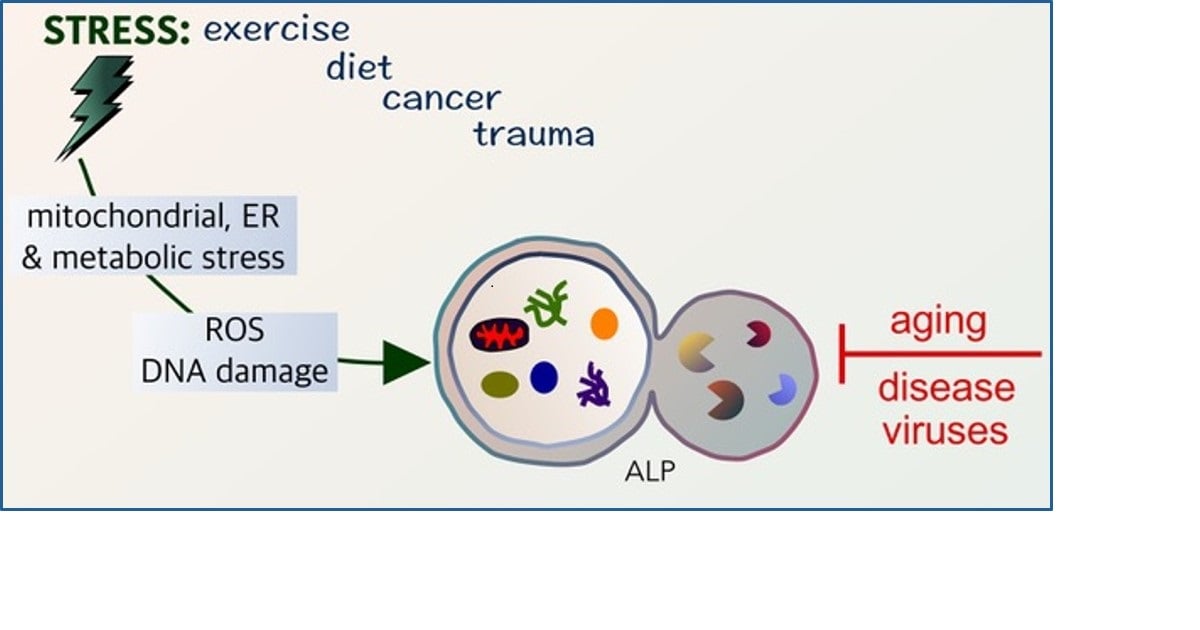- 5.2Impact Factor
- 10.5CiteScore
- 16 daysTime to First Decision
Autophagy in Stress Responses: From Molecular Mechanisms to Disease Relevance
This special issue belongs to the section “Autophagy“.
Special Issue Information
Dear Colleagues,
Autophagy is a highly conserved cellular process essential for maintaining homeostasis under both basal and stress conditions. By capturing, degrading, and recycling damaged organelles, misfolded proteins, and toxic aggregates, autophagy enables cells to adapt to nutrient deprivation, oxidative stress, exercise, and other environmental challenges. In recent years, the molecular mechanisms that regulate autophagy, including selective cargo recognition, membrane dynamics, and the interplay with signaling pathways such as mTOR, AMPK, ubiquitin, and stress granule formation, have become areas of intense investigation. Dysregulation of autophagy has been increasingly linked to human pathologies, ranging from neurodegenerative and cardiovascular diseases to cancer, infection, and aging. This Special Issue of Cells invites original research and review articles that explore autophagy’s multifaceted roles in stress adaptation and disease. We particularly welcome studies that integrate molecular, cellular, and physiological insights to advance our understanding of how autophagy functions as both a protective and pathological mechanism across biological systems.
Dr. Katrina F. Cooper
Dr. Kleiton Silva
Guest Editors
Manuscript Submission Information
Manuscripts should be submitted online at www.mdpi.com by registering and logging in to this website. Once you are registered, click here to go to the submission form. Manuscripts can be submitted until the deadline. All submissions that pass pre-check are peer-reviewed. Accepted papers will be published continuously in the journal (as soon as accepted) and will be listed together on the special issue website. Research articles, review articles as well as short communications are invited. For planned papers, a title and short abstract (about 250 words) can be sent to the Editorial Office for assessment.
Submitted manuscripts should not have been published previously, nor be under consideration for publication elsewhere (except conference proceedings papers). All manuscripts are thoroughly refereed through a single-blind peer-review process. A guide for authors and other relevant information for submission of manuscripts is available on the Instructions for Authors page. Cells is an international peer-reviewed open access semimonthly journal published by MDPI.
Please visit the Instructions for Authors page before submitting a manuscript. The Article Processing Charge (APC) for publication in this open access journal is 2700 CHF (Swiss Francs). Submitted papers should be well formatted and use good English. Authors may use MDPI's English editing service prior to publication or during author revisions.
Keywords
- autophagy
- stress response
- proteostasis
- mitophagy
- neurodegeneration
- aging
- stress granules
- mTOR signaling
- selective autophagy
- disease models
- exercise
- muscle disorders

Benefits of Publishing in a Special Issue
- Ease of navigation: Grouping papers by topic helps scholars navigate broad scope journals more efficiently.
- Greater discoverability: Special Issues support the reach and impact of scientific research. Articles in Special Issues are more discoverable and cited more frequently.
- Expansion of research network: Special Issues facilitate connections among authors, fostering scientific collaborations.
- External promotion: Articles in Special Issues are often promoted through the journal's social media, increasing their visibility.
- e-Book format: Special Issues with more than 10 articles can be published as dedicated e-books, ensuring wide and rapid dissemination.

